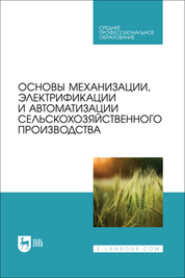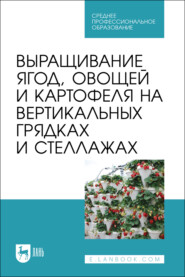По всем вопросам обращайтесь на: info@litportal.ru
(©) 2003-2024.
✖
Short-Stories
Настройки чтения
Размер шрифта
Высота строк
Поля
Now they greatly regretted and lamented that they had sent away the Minor Canon; he was the only one on whom they could have depended in this trouble, for he could talk freely with the Griffin, and so find out what could be done. But it would not do to be inactive. Some step must be taken immediately. A meeting of the citizens was called, and two old men were appointed to go and talk to the Griffin. They were instructed to offer to prepare a splendid dinner for him on equinox day, – one which would entirely satisfy his hunger. They would offer him the fattest mutton, the most tender beef, fish, and game of various sorts, and any thing of the kind that he might fancy. If none of these suited, they were to mention that there was an orphan asylum in the next town.
"Any thing would be better," said the citizens, "than to have our dear children devoured."
The old men went to the Griffin, but their propositions were not received with favor.
"From what I have seen of the people of this town," said the monster, "I do not think I could relish any thing which was prepared by them. They appear to be all cowards, and, therefore, mean and selfish. As for eating one of them, old or young, I could not think of it for a moment. In fact, there was only one creature in the whole place for whom I could have had any appetite, and that is the Minor Canon, who has gone away. He was brave, and good, and honest, and I think I should have relished him."
"Ah!" said one of the old men very politely, "in that case I wish we had not sent him to the dreadful wilds!"
"What!" cried the Griffin. "What do you mean? Explain instantly what you are talking about!"
The old man, terribly frightened at what he had said, was obliged to tell how the Minor Canon had been sent away by the people, in the hope that the Griffin might be induced to follow him.
When the monster heard this, he became furiously angry. He dashed away from the old men and, spreading his wings, flew backward and forward over the town. He was so much excited that his tail became red-hot, and glowed like a meteor against the evening sky. When at last he settled down in the little field where he usually rested, and thrust his tail into the brook, the steam arose like a cloud, and the water of the stream ran hot through the town. The citizens were greatly frightened, and bitterly blamed the old man for telling about the Minor Canon.
"It is plain," they said, "that the Griffin intended at last to go and look for him, and we should have been saved. Now who can tell what misery you have brought upon us."
The Griffin did not remain long in the little field. As soon as his tail was cool he flew to the town-hall and rang the bell. The citizens knew that they were expected to come there, and although they were afraid to go, they were still more afraid to stay away; and they crowded into the hall. The Griffin was on the platform at one end, flapping his wings and walking up and down, and the end of his tail was still so warm that it slightly scorched the boards as he dragged it after him.
When everybody who was able to come was there the Griffin stood still and addressed the meeting.
"I have had a contemptible opinion of you," he said, "ever since I discovered what cowards you are, but I had no idea that you were so ungrateful, selfish, and cruel as I now find you to be. Here was your Minor Canon, who labored day and night for your good, and thought of nothing else but how he might benefit you and make you happy; and as soon as you imagine yourselves threatened with a danger, – for well I know you are dreadfully afraid of me, – you send him off, caring not whether he returns or perishes, hoping thereby to save yourselves. Now, I had conceived a great liking for that young man, and had intended, in a day or two, to go and look him up. But I have changed my mind about him. I shall go and find him, but I shall send him back here to live among you, and I intend that he shall enjoy the reward of his labor and his sacrifices. Go, some of you, to the officers of the church, who so cowardly ran away when I first came here, and tell them never to return to this town under penalty of death. And if, when your Minor Canon comes back to you, you do not bow yourselves before him, put him in the highest place among you, and serve and honor him all his life, beware of my terrible vengeance! There were only two good things in this town: the Minor Canon and the stone image of myself over your church-door. One of these you have sent away, and the other I shall carry away myself."
With these words he dismissed the meeting, and it was time, for the end of his tail had become so hot that there was danger of its setting fire to the building.
The next morning, the Griffin came to the church, and tearing the stone image of himself from its fastenings over the great door, he grasped it with his powerful fore-legs and flew up into the air. Then, after hovering over the town for a moment, he gave his tail an angry shake and took up his flight to the dreadful wilds. When he reached this desolate region, he set the stone Griffin upon a ledge of a rock which rose in front of the dismal cave he called his home. There the image occupied a position somewhat similar to that it had had over the church-door; and the Griffin, panting with the exertion of carrying such an enormous load to so great a distance, lay down upon the ground, and regarded it with much satisfaction. When he felt somewhat rested he went to look for the Minor Canon. He found the young man, weak and half-starved, lying under the shadow of a rock. After picking him up and carrying him to his cave, the Griffin flew away to a distant marsh, where he procured some roots and herbs which he well knew were strengthening and beneficial to man, though he had never tasted them himself. After eating these the Minor Canon was greatly revived, and sat up and listened while the Griffin told him what had happened in the town.
"Do you know," said the monster, when he had finished, "that I have had, and still have, a great liking for you?"
"I am very glad to hear it," said the Minor Canon, with his usual politeness.
"I am not at all sure that you would be," said the Griffin, "if you thoroughly understood the state of the case, but we will not consider that now. If some things were different, other things would be otherwise. I have been so enraged by discovering the manner in which you have been treated that I have determined that you shall at last enjoy the rewards and honors to which you are entitled. Lie down and have a good sleep, and then I will take you back to the town."
As he heard these words, a look of trouble came over the young man's face.
"You need not give yourself any anxiety," said the Griffin, "about my return to the town. I shall not remain there. Now that I have that admirable likeness of myself in front of my cave, where I can sit at my leisure, and gaze upon its noble features and magnificent proportions, I have no wish to see that abode of cowardly and selfish people."
The Minor Canon, relieved from his fears, lay back, and dropped into a doze; and when he was sound asleep the Griffin took him up, and carried him back to the town. He arrived just before daybreak, and putting the young man gently on the grass in the little field where he himself used to rest, the monster, without having been seen by any of the people, flew back to his home.
When the Minor Canon made his appearance in the morning among the citizens, the enthusiasm and cordiality with which he was received were truly wonderful. He was taken to a house which had been occupied by one of the vanished high officers of the place, and every one was anxious to do all that could be done for his health and comfort. The people crowded into the church when he held services, so that the three old women who used to be his week-day congregation could not get to the best seats, which they had always been in the habit of taking; and the parents of the bad children determined to reform them at home, in order that he might be spared the trouble of keeping up his former school. The Minor Canon was appointed to the highest office of the old church, and before he died, he became a bishop.
During the first years after his return from the dreadful wilds, the people of the town looked up to him as a man to whom they were bound to do honor and reverence; but they often, also, looked up to the sky to see if there were any signs of the Griffin coming back. However, in the course of time, they learned to honor and reverence their former Minor Canon without the fear of being punished if they did not do so.
But they need never have been afraid of the Griffin. The autumnal equinox day came round, and the monster ate nothing. If he could not have the Minor Canon, he did not care for any thing. So, lying down, with his eyes fixed upon the great stone griffin, he gradually declined, and died. It was a good thing for some people of the town that they did not know this.
If you should ever visit the old town, you would still see the little griffins on the sides of the church; but the great stone griffin that was over the door is gone.
BIOGRAPHY
Frank Richard Stockton, one of America's foremost story-tellers and humorists, was born in Philadelphia in 1834. His father was a Presbyterian minister who devoutly wished that his son might study medicine. This wish was shattered early, for the son showed symptoms of being a writer while yet in the Central High School of Philadelphia. In competition with many of his schoolmates for a prize offered for the best story, young Stockton won easily.
After finishing his high school course, he adopted the profession of wood-engraver. Although he earned his living for several years by carving wood, he never lost his desire to write, and practised, at every spare moment, his favorite avocation. It was this careful and patient training during his apprenticeship that finally made him the expert story-teller that he is. It is very interesting to any one who cares for the acquirement of an excellent style to note how all the authors contained in this text have had to work with almost a superhuman force to reach the heights of successful short-story writing.
His first important publication, Kate, appeared in the Southern Literary Messenger in 1859. He then joined the staff of the Philadelphia Morning Post, where he did regular newspaper work and contributed to the Riverside Magazine and Hearth and Home. In 1872 his Stephen Skarridge's Christmas appeared in Scribner's Monthly. Dr. J.G. Holland, editor of Scribner's, was so impressed with the story that he made Mr. Stockton an assistant editor and persuaded him to move to New York. In 1873 he joined the staff of the St. Nicholas Magazine. His publication of the Rudder Grange series in Scribner'sMonthly in 1878 made him famous. In 1882 he resigned all editorial work and spent his entire time in literary composition.
Mr. Stockton possessed a frail body and very little physical endurance. In spite of this physical handicap he was very vivacious and gay. He was a genial and companionable man, loved by all who knew him. He was very modest, even to the point of shyness, exceptionally sincere, and quaintly humorous. He established homes in New Jersey and West Virginia, where he spent the greater part of his time from 1882 until his death in 1902.
BIOGRAPHICAL REFERENCES
Famous Authors (107-122), B.F. Harkness.
American Authors (59-73), F.W. Halsey.
"Character Sketch," Book-Buyer, 24:355-357.
"Home at Claymont," Current Literature, 30:221.
"Sketch," Outlook, 70: 1000-1001,
"Stockton and his Work," Atlantic Monthly, 87:136-138.
CRITICISMS
The writings of Frank R. Stockton are excellent representatives of the man himself. How closely allied writer and writings are is very well stated by Hamilton W. Mabie in the Book-Buyer for June, 1902, "His talk had much of the quality of his writing; it was full of quaint conceits, whimsicalities, impossible suggestions offered with perfect gravity. He was always perfectly natural; he never attempted to live up to his part; in talk, at least, he never forced the note. His attitude toward himself was slightly tinged with humor, and he knew how to foil easily and pleasantly too great a pressure of praise."
His tales are extravagantly impossible but extremely realistic in effect, filled with humorous situations and singular plots, and peopled with eccentric characters that afford amusement on every page. His most successful writing is done when he explains contrivances upon which his story depends. He is an original and inventive expert juggler who moves with careless ease to the most effective ends. His characters are little more than pieces of mechanism that act when he pulls the string. They have little emotion and even in their love-making they show their emotion mostly for the sake of the reader's amusement. His negro characters are exceptions to his general treatment and are true to life. He inveigles the reader into believing the most extravagant incidents by having a reliable witness narrate them.
Stockton never stoops to the burlesque, cynic, or vulgar phases of life to secure amusement. He is grotesque and droll in his manner, and above all always restrained. His literary life is full of sprites and gnomes that frolic before young children and once before mature people. The Griffin and the Minor Canon is a beautiful fairy story lifted from childhood's thought and diction into a mature realm. His humor is plain and simple, cool and keenly calculating. A friendly critic has said of one of his stories, "With a gentle, ceaseless murmur of amusement, and a flickering twinkle of smiles, the story moves steadily on in the calm triumph of its assured and unassailable absurdity, to its logical and indisputable impossibility." This observation is very largely true of all his stories.
GENERAL REFERENCES
Frank R. Stockton, A.T.Q. Couch.
"Stockton's Method of Working," Current Literature, 32:495.
"Criticism," Atheneum, 1:532.
"Estimate," Harper's Weekly, 46:555.
COLLATERAL READINGS
The Beeman of Orn, and Other Fanciful Tales, Frank R. Stockton.
The Lady or the Tiger, Frank R. Stockton.
Rudder Grange, Frank R. Stockton.
A Tale of Negative Gravity, Frank R. Stockton.

















